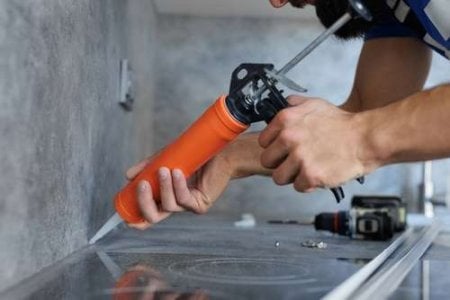The Australian government will impose a ban on this home makeover item by next year!
By
Danielle F.
- Replies 22
As early as now, the Australian government is already looking for ways to make the upcoming new year better for their citizens.
Thanks to their newest update, Australians can also look forward to a significant health and safety advancement in the construction industry.
Starting 1 January 2025, the importation of engineered stone products will be prohibited.
Once implemented, Australia will be the first country to impose the ban.
This decision by the Albanese government marked the culmination of efforts to eradicate a material that has devastating effects on workers.
Engineered stone, a material commonly used in kitchen benchtops, has been linked to a worrying increase in silicosis cases among stonemasons.
This condition, caused by inhaling fine particles of crystalline silica present in fake stone, is incurable and could be fatal.
A Safe Work Australia report pointed out the dangers of engineered stone.
The report deemed the material could pose an 'unacceptable risk' to its handlers, particularly during cutting and installation processes.
This prompted the government to announce the national ban on using engineered stone.
The import ban should be the final step to ensure the safety of Australian workers.
'No one deserves to have their health compromised due to their working environment,' Minister Watt stated.
Apart from the ban, the government also allocated $32.1 million to the Australian Border Force to enforce import prohibition.
Australia's first recorded case of silicosis happened in 2015.
Health experts have warned that without intervention, the country could face a crisis similar to one caused by asbestos.
The exact number of silicosis-related deaths remains undisclosed, but the government started monitoring the situation closely through a new national register of diagnoses and deaths.
Housing Industry Australia's Industry and Policy Chief Executive Simon Croft expected an import ban after the domestic prohibition.
The industry has been sourcing alternative materials for kitchen benchtops, such as porcelain and zero silica mineral surface products.
However, the transition has not been as smooth-sailing across different states and territories.
In addition to the ban on engineered stone, tradies should adhere to new workplace health and safety rules for handling materials that contain at least one per cent crystalline silica.
These include typical construction materials like bricks and sandstone.
These regulations came into effect last 1 September, which underscored the government's comprehensive approach to tackling silicosis.

Have you or someone you know been affected by silicosis? What do you think about the government's upcoming ban on engineered stone products? Share your thoughts and opinions with us in the comments below.
Thanks to their newest update, Australians can also look forward to a significant health and safety advancement in the construction industry.
Starting 1 January 2025, the importation of engineered stone products will be prohibited.
Once implemented, Australia will be the first country to impose the ban.
This decision by the Albanese government marked the culmination of efforts to eradicate a material that has devastating effects on workers.
Engineered stone, a material commonly used in kitchen benchtops, has been linked to a worrying increase in silicosis cases among stonemasons.
This condition, caused by inhaling fine particles of crystalline silica present in fake stone, is incurable and could be fatal.
A Safe Work Australia report pointed out the dangers of engineered stone.
The report deemed the material could pose an 'unacceptable risk' to its handlers, particularly during cutting and installation processes.
This prompted the government to announce the national ban on using engineered stone.
The import ban should be the final step to ensure the safety of Australian workers.
Workplace Relations Minister Murray Watt emphasised the importance of this ban.'No one deserves to have their health compromised due to their working environment,' Minister Watt stated.
Apart from the ban, the government also allocated $32.1 million to the Australian Border Force to enforce import prohibition.
Australia's first recorded case of silicosis happened in 2015.
Health experts have warned that without intervention, the country could face a crisis similar to one caused by asbestos.
The exact number of silicosis-related deaths remains undisclosed, but the government started monitoring the situation closely through a new national register of diagnoses and deaths.
The building industry has been preparing for this ban.Housing Industry Australia's Industry and Policy Chief Executive Simon Croft expected an import ban after the domestic prohibition.
The industry has been sourcing alternative materials for kitchen benchtops, such as porcelain and zero silica mineral surface products.
However, the transition has not been as smooth-sailing across different states and territories.
In addition to the ban on engineered stone, tradies should adhere to new workplace health and safety rules for handling materials that contain at least one per cent crystalline silica.
These include typical construction materials like bricks and sandstone.
These regulations came into effect last 1 September, which underscored the government's comprehensive approach to tackling silicosis.
Key Takeaways
- Australia is set to ban the import of engineered stone products starting 1 January 2025 due to risks of silicosis.
- The ban should protect construction industry workers like stonemasons from the deadly lung disease caused by inhaling silica dust.
- The government also introduced stricter workplace health and safety rules for handling materials that contain at least one per cent crystalline silica.
- Industry professionals have been preparing for the transition by sourcing alternative materials for kitchen benchtops.








